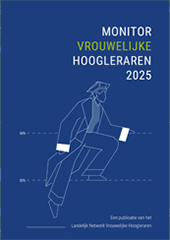3 Jul 2020
Ruling of the Netherlands Institute for Human Rights in TU Eindhoven's Irène Curie Fellowship case
On July 3rd, the Netherlands Institute for Human Rights (CRM) published the ruling in the TU Eindhoven's Irène Curie Fellowship case. It states that the fellowship 'does not meet the requested requirements for positive action' (preference policy). It is a decision with concrete recommendations for adjustments and fune tuning in the programme, as the Institute for Human Rights acknowledges the structural underrepresentation of women in academia. The Dutch Network of Women Professors applauds the constructive attitude of Eindhoven University of Technology towards this decision. The road to greater diversity and inclusion is often one of pioneering and therefore has obstacles. We are happy that this ruling does not detract from TU Eindhoven's attention for increasing the percentages of women academics within their institution. And we hope, of course, that this ruling does not prevent other universities from implementing bold measures to achieve a proportional representation of women in academia. Keep up the good work!Please find the official statement of the TUe below. You can find the ruling of the CRM here.
TU/e remains committed to improving its gender balance.
The university is studying the findings of the Netherlands Institute for Human Rights on the TU/e Irène Curie Fellowship program. In the findings, which were published today, the institute concludes that the program in its current set-up is not proportional. But the findings also give clear clues, which the university will use to reassess its approach to improve the gender balance in its faculty.
“Our commitment to this very important cause is unchanged”, says TU/e President Robert-Jan Smits. “Our Irène Curie Fellowship program has shown to be very effective. We hired 48 talented new female faculty since the start of the program, from all over the world. Our overall aim is unaltered: we want to reach thirty percent female faculty within five years. Because at that percentage a minority stops being a minority and has the position and influence it deserves.”
TU/e rector Frank Baaijens: “The Institute for Human Rights acknowledges our goals and agrees that female faculty are underrepresented at the university. However, the Institute concludes that the program has been applied too broadly. It is appreciated that the Institute gives clear clues on what type of measures we can consider to reach a better gender balance. We will study the findings of the Institute, as well as their recommendations, to determine our next steps.”
Eindhoven University of Technology started its much-debated recruitment program in July 2019, after ten years of cumulative measures with too little effect. EU-wide the Netherlands has one of the lowest percentages of female professors, and within the Netherlands TU/e has long been the university with the lowest percentage in this respect. The university feels this imbalance is not only unfair to women, but it also hurts science: diverse and inclusive work environments lead to better results.


